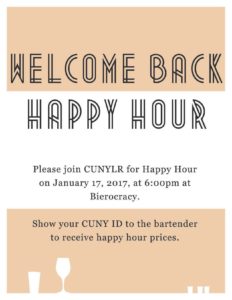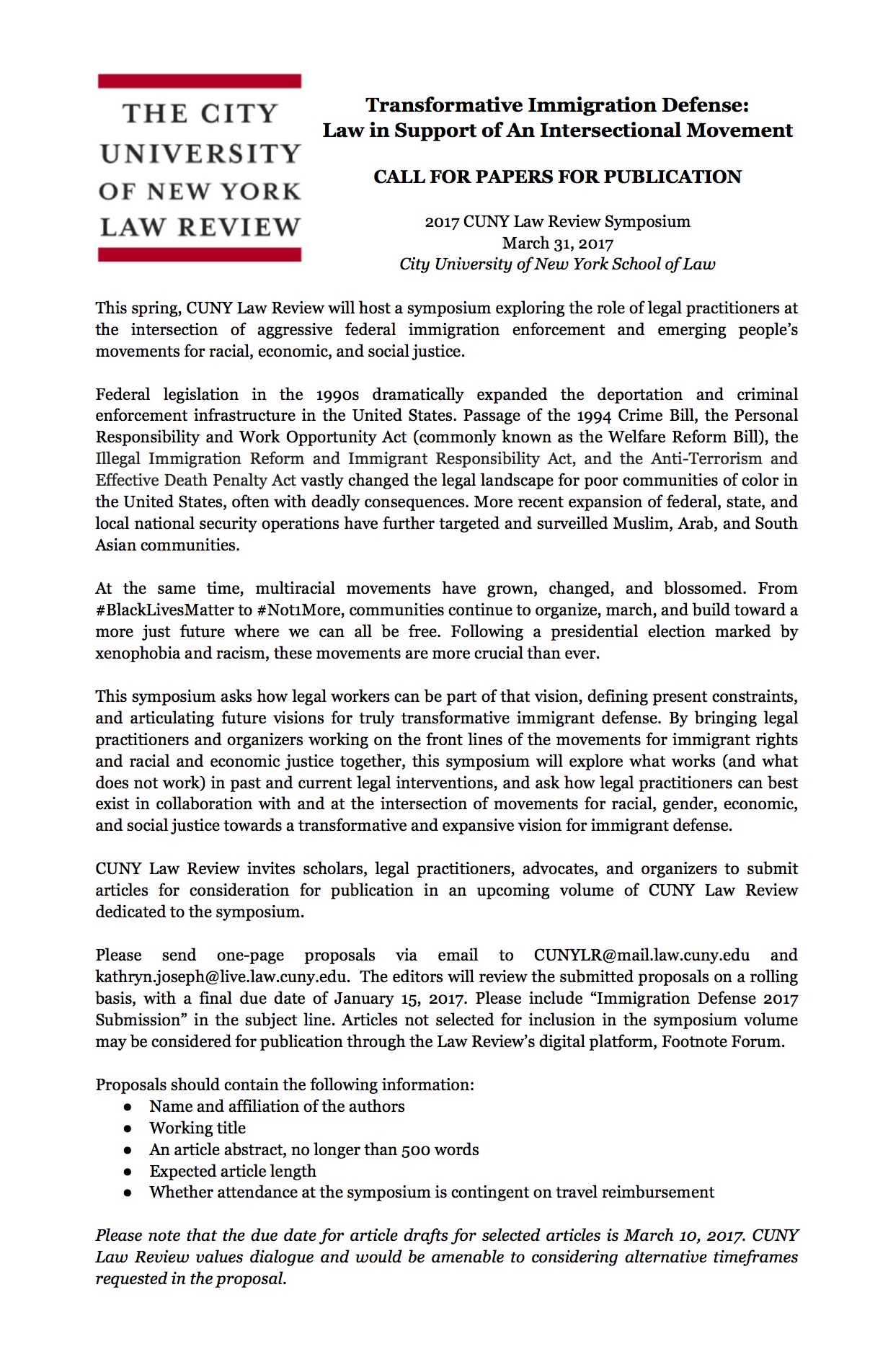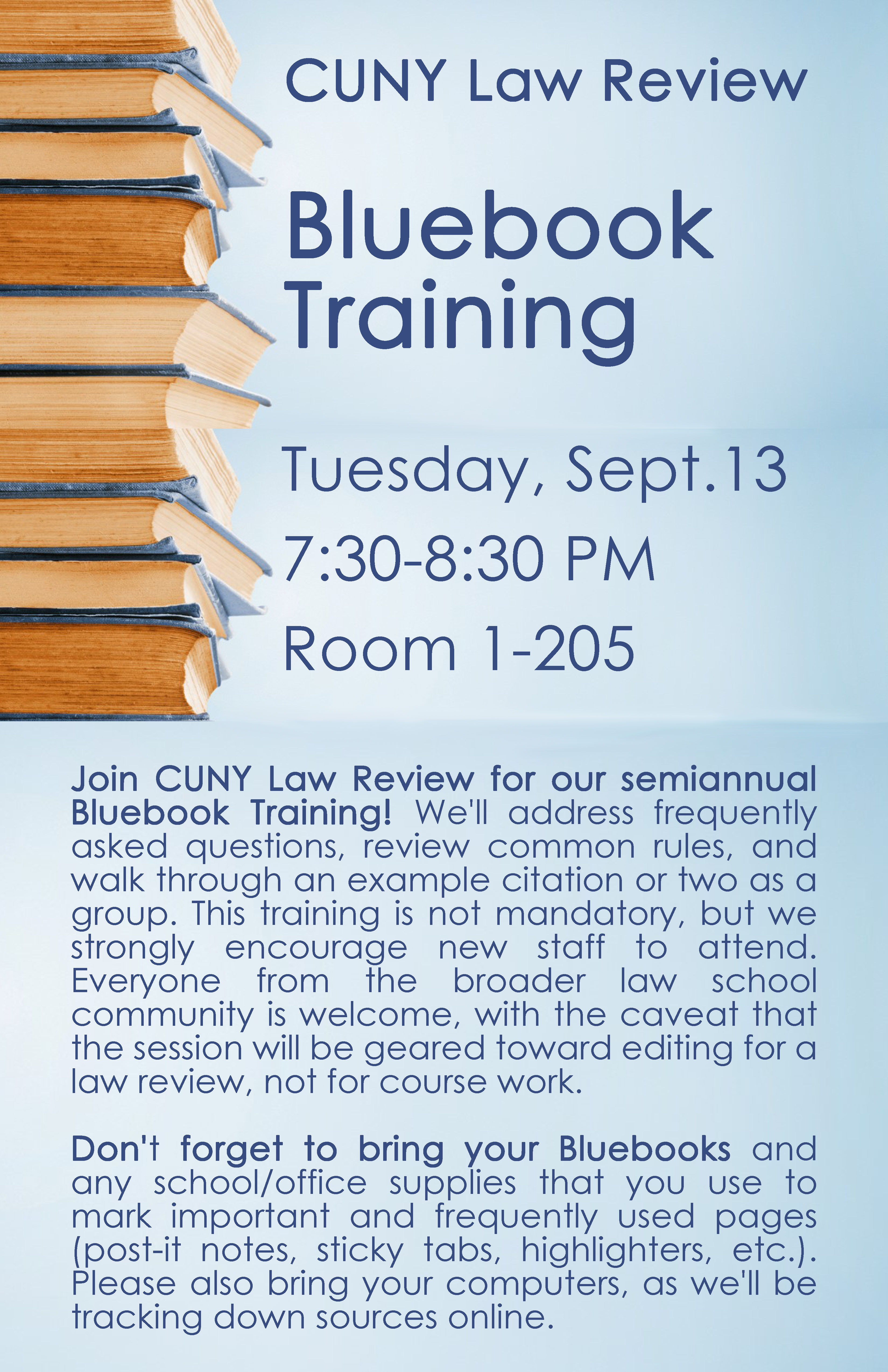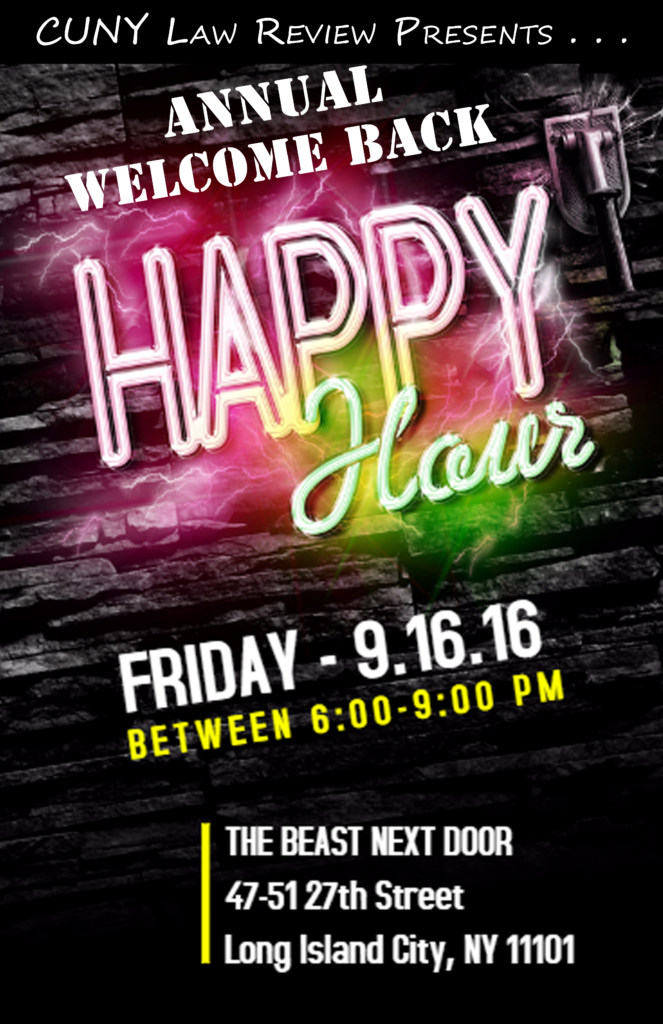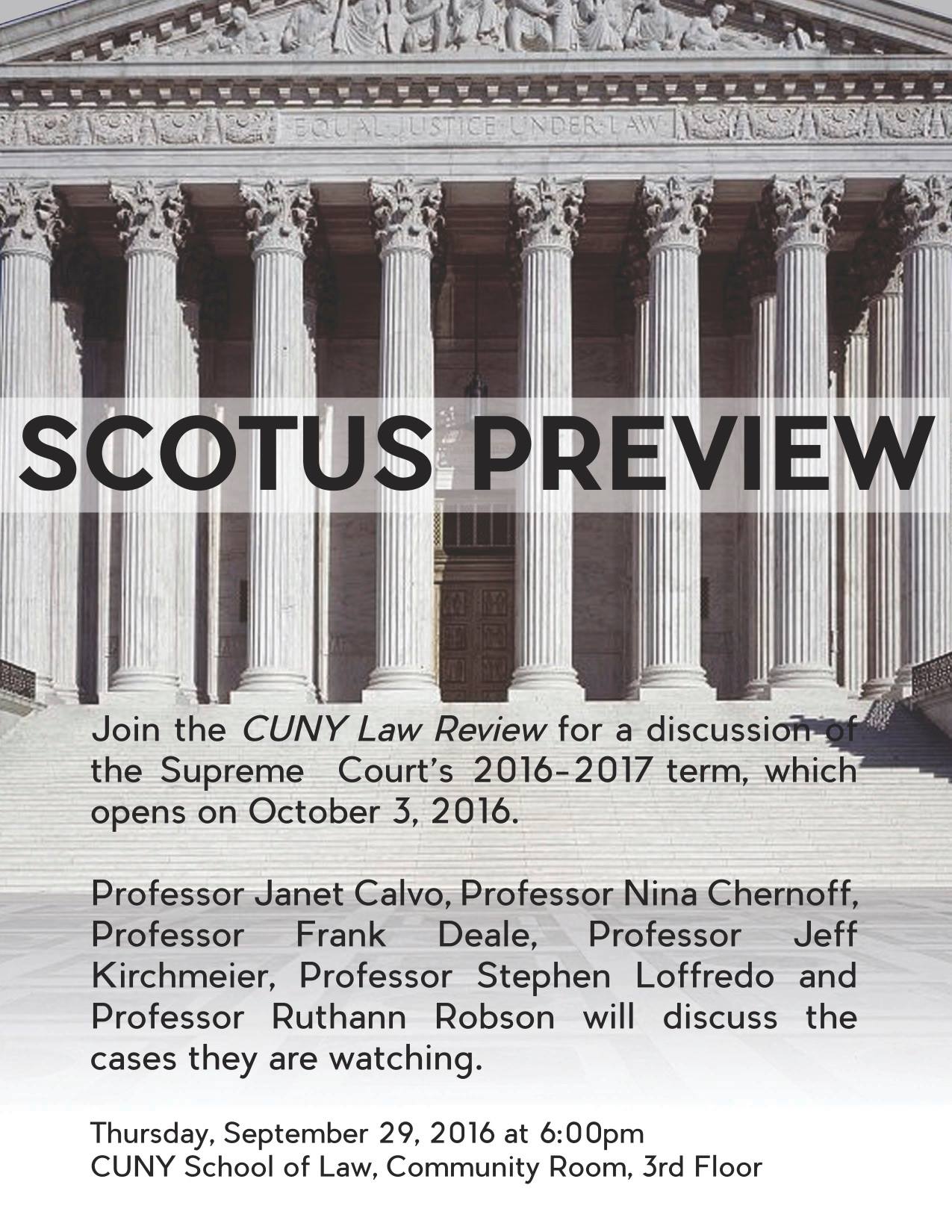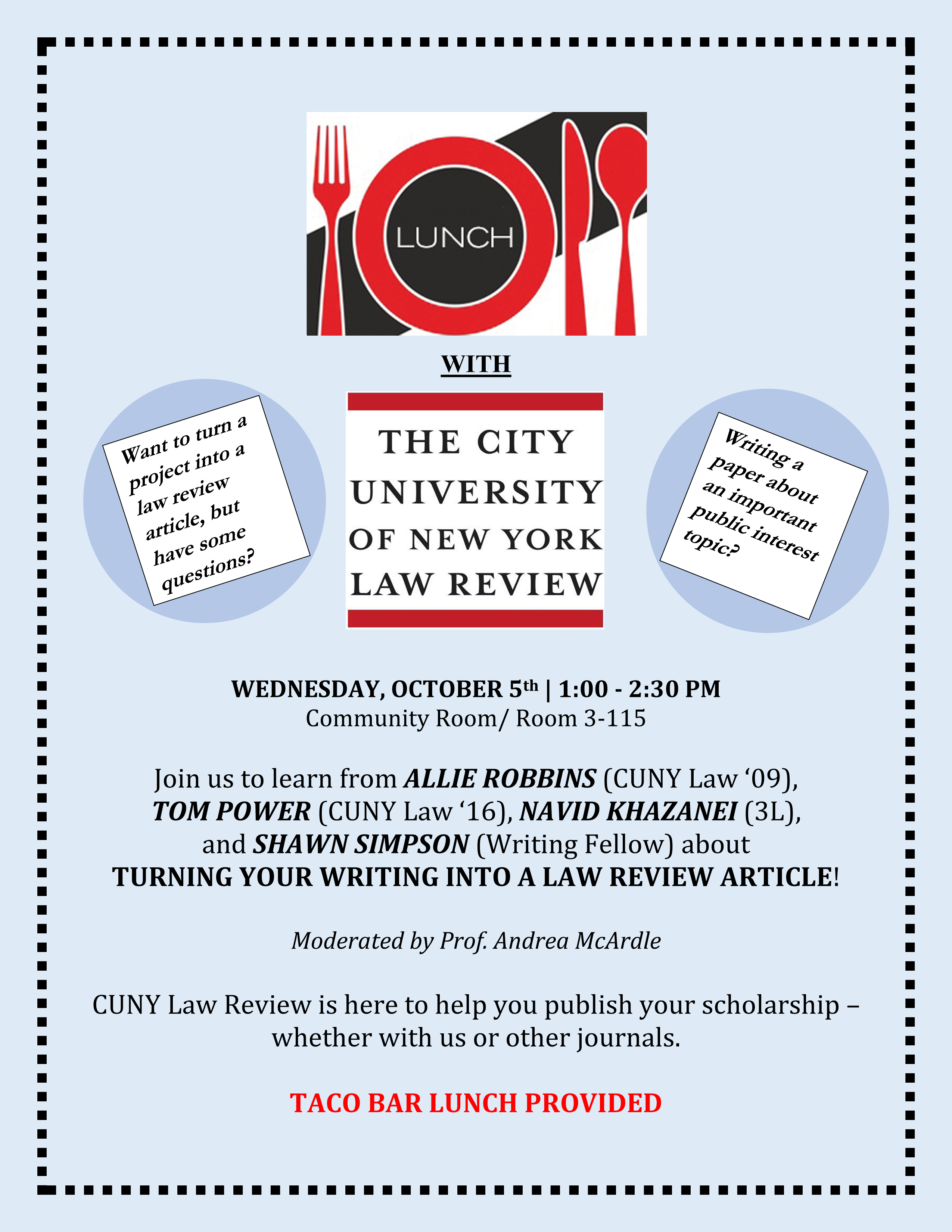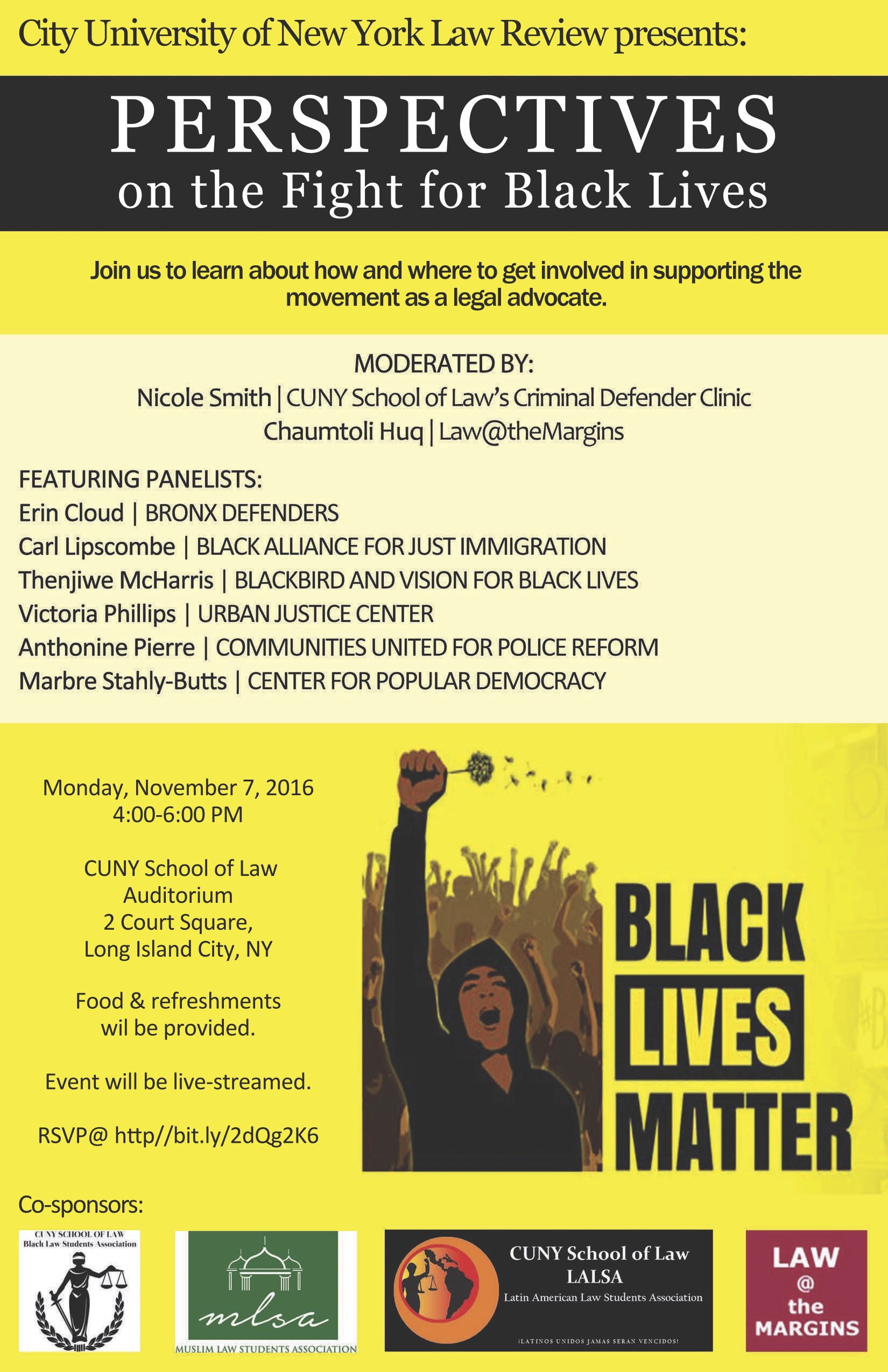Join CUNY Law Review for some exciting spring events!
Welcome Back Happy Hour
We invite the whole CUNY School of Law community to join us for a welcome back happy hour!
Tuesday, January 17, 2017 | 6:00pm
Bierocracy
12-23 Jackson Ave.
Long Island City, NY
Bluebook Training
Join us for our semiannual Bluebook Training! We’ll review common errors, oft-forgotten rules, and correct some sample law review citations together. Please bring your Bluebooks, any office supplies you use to mark important pages, and your computers!
Thursday, January 18 | 1:45-2:45pm
Room 1/202
CUNITY Conversation
Join us for a discussion with Cassie Veach, CUNY School of Law 2017, and Shailly Agnihotri, Founder and Executive Director of The Restorative Center (TRC), about their article Reclaiming Restorative Justice: An Alternative Paradigm for Justice that will be published in CUNY Law Review’s 20th volume, issue 2.
Wednesday, February 8 | 6:00 – 7:30pm
Room 1/202
Dinner & refreshments provided.
Symposium
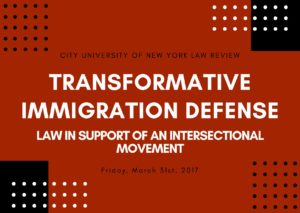
CUNY Law Review will host a symposium exploring the role of legal practitioners at the intersection of aggressive federal immigration enforcement and emerging people’s movements for racial, economic, and social justice.
More information to follow.
Friday, March 31 | Half Day
CUNY School of Law
CLE Credit Available
A Comprehensive Safety Net: Homeless Prevention in NYC
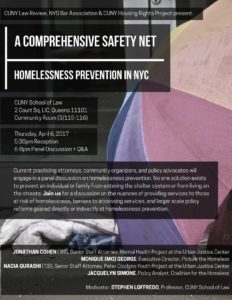
Join us for a discussion with focus on the nuances of providing services to those at risk of homeless, barriers to accessing services, and larger scale policy reforms geared directly or indirectly at homeless prevention.
Thursday, April 6 | 5:30 – 8:00pm
Community Room
Dinner & refreshments provided.
Getting Published
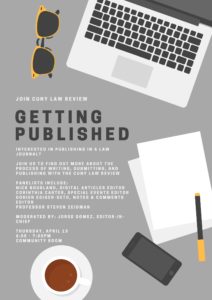
Join us to find out more about the process of writing, submitting, and publishing with the CUNY Law Review.
Thursday, April 13 | 6:00 – 7:00pm
Community Room
First Toast
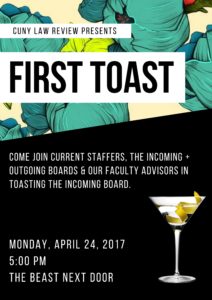
Join current staffers, the incoming and outgoing boards for a toast!
Monday, April 24 | 5:00 – 9:00pm
The Beast Next Door
42-51 27th St
Long Island City, NY 11101

